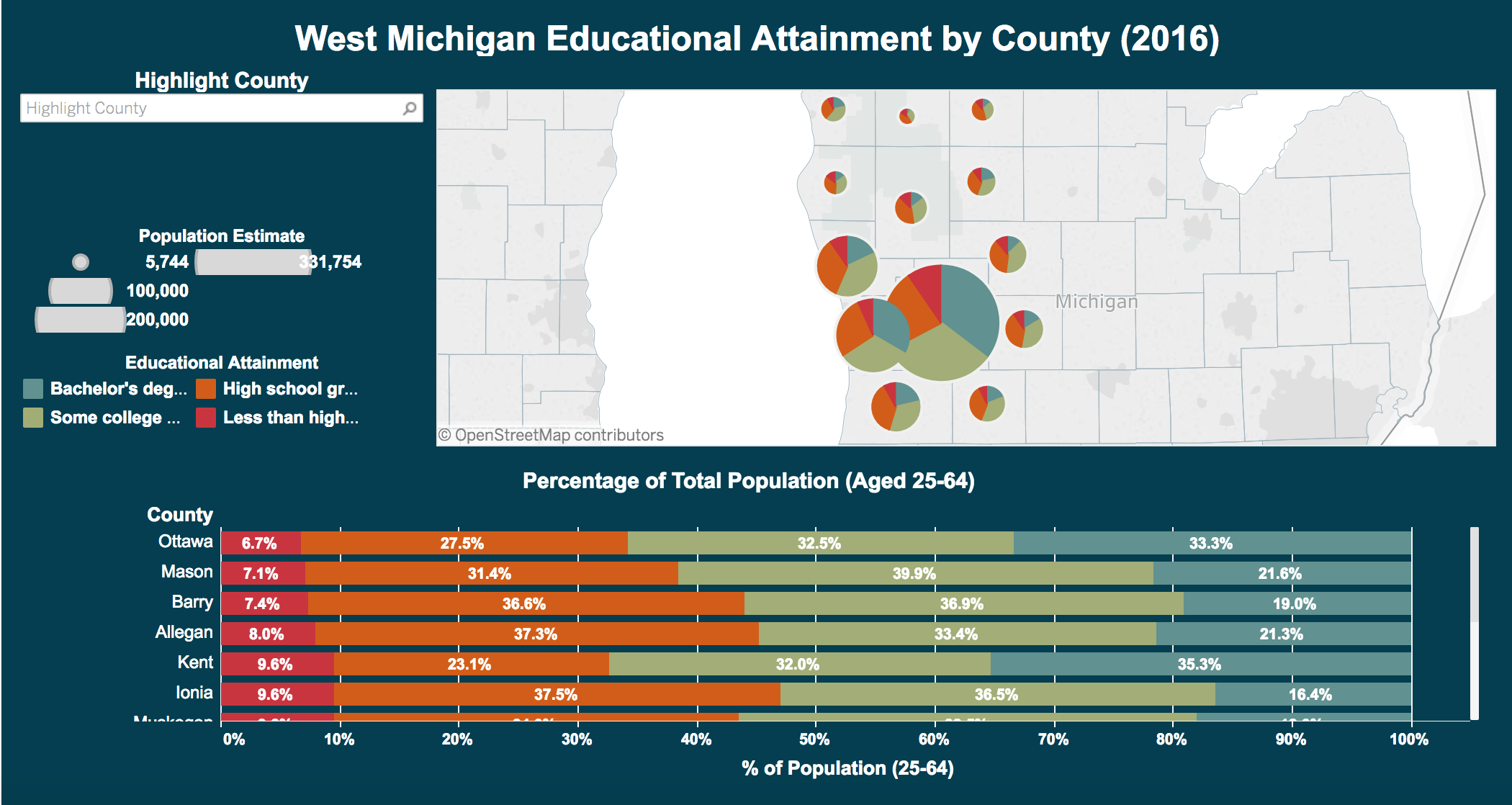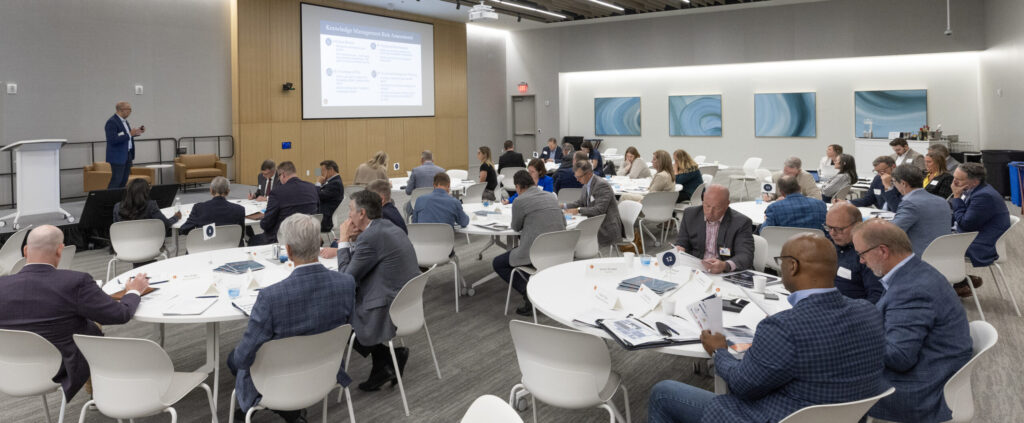Talent 2025’s foundational goal is that 64 percent of the adult population in West Michigan will have some form of post-secondary education by 2025, which includes certificates, Associate’s and Bachelor’s degrees, and beyond. In 2016, West Michigan stands at 58.6 percent for this figure. While this represents an increase of 0.3 percent from the previous year, the region is still some 5.4 percentage points shy of the goal.
Although we’re tracking this number in the aggregate, American Community Survey data allows us to take a closer look at educational attainment within each of West Michigan’s 13 counties.
Education by County
In 2016, while the overall percentage of the working-age population (25-64) with some education beyond high school was 58.6 percent, approximately 10.3 percent of adults in West Michigan had less than a high school diploma or GED. As one might assume, this metric varied greatly across counties. The highest rate was observed in Lake County, where 15.7 percent of the adult population had not completed high school or attained a GED. In contrast, Ottawa County came in with the lowest portion of adults with education levels below that of high school completion, at 6.7 percent. To put this into perspective, this means that 901 adults in Lake County and 8,973 adults in Ottawa County had not completed high school or attained a GED as of 2016.

View the interactive workbook on this data via Tableau here.
The Impact of Low Educational Attainment Rates
The lack of a basic education and employability skills has adverse economic and social effects for this section of the population. Lacking the basic education provided through completing a high school curriculum significantly restricts their abilities to find employment, and to navigate the healthcare, education, and social welfare systems. These restrictions contribute to increased stress in the household, while serving to diminish the academic performance of their children and preventing these individuals from progressing into more advanced education and training programs.
The lack of post-secondary education and credentialing among working-age adults is a significant factor in the difficulty employers find in hiring the skilled labor force they need to provide products and services to their customers, which is straining business growth and the region’s economic performance. In West Michigan, 24 percent of job vacancies are considered “hard to fill,” having been listed for 90 days or longer. Many of these jobs are in high-demand, skilled fields such as IT, health care, and advanced manufacturing. While high-demand and hard-to-fill jobs are often an entry into sustainable career paths, there are currently not enough adults in West Michigan with the credentials required by these fields.
As such, Talent 2025 is working to establish and support accessible, affordable training programs to provide an option for those who may not have otherwise been able to afford a post-secondary education. The apprenticeship model serves as one program that allows young adults and those already in the workforce to receive training while earning an income, working alongside professionals to train for a career within an industry. Unfortunately, apprenticeships are underutilized and often limited to trade occupations, while the skills necessary for occupations like a Graphic Designer, IT Technician or Human Resources Specialist could be acquired through an apprenticeship model rather than a traditional, four-year degree.


